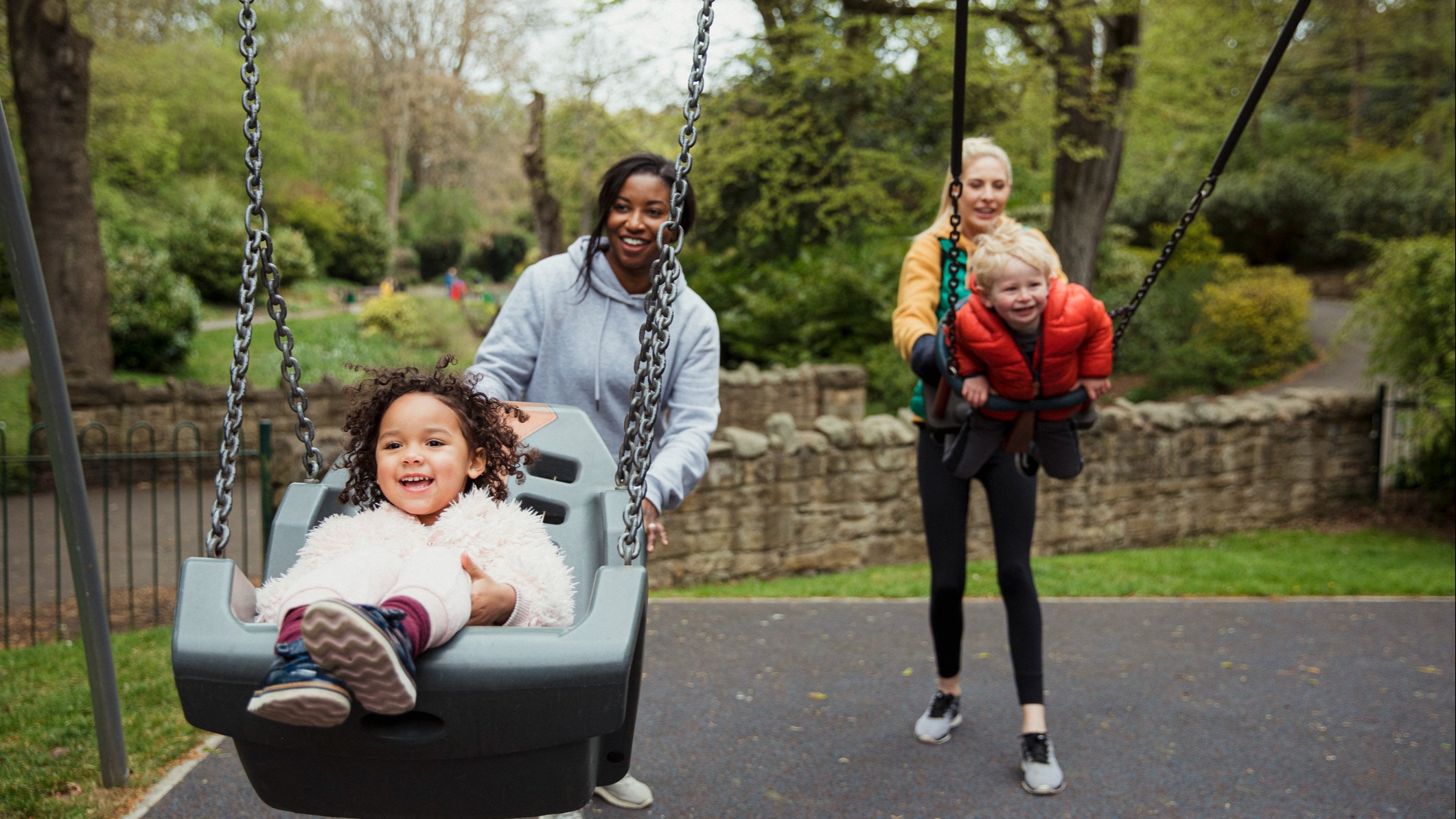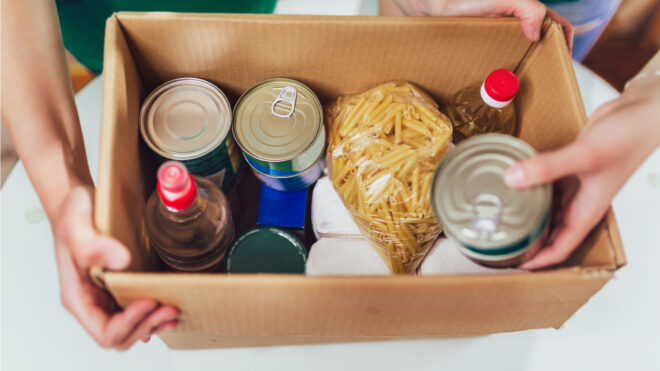
Think back to those times in your life when you found yourself going through a difficult or rough period, whether it was related to work or during a tumultuous relationship. Things didn’t feel so hot when you felt shame or spoke poorly about yourself, did they?
According to Harvard Business Review, general life anxieties can be alleviated when you purposefully “practice more deliberate kindness and self-compassion.” So, those moments in life when you were going through something that tested you or even if you were just having an off day and you stopped showing yourself compassion, it likely only helped to thrust you into a more negative headspace.

Looking at kids who are all just learning how to self-regulate and interact and socialize with their peers and loved ones, acts of self-care and kindness are super important in helping to set them up on a well-intentioned and compassionate life journey.
If you’re looking for a thoughtful guide on how to teach your child that kindness truly starts from within by practicing these crucial acts of self-care every day, keep reading.
Encourage and show them by example how to speak kindly to themselves daily.

One of the best ways you can teach your kids how to treat themselves and the ones around them is simply leading by example. There are so many times when we look in the mirror and criticize the person staring back at us for any number of reasons. When you have kids, they can pick up on those self-criticisms and start to internalize some of that negative self-talk.
Happiful explains that most kids are aware of the power of words because they’re often taught that if they say something mean or hurtful toward someone, those unkind words can hurt their feelings. On the flip side, when someone pays them a compliment or encourages their good behavior, it can often allow them to feel more inspired and content.
The publication notes that helping your child see that their physical self deserves kindness and appreciation, but also teaching them to pause during trying moments and use their name when they tell themselves that it’s going to be OK, they are a great person, and they can accomplish whatever’s ahead for them — whether that’s studying for a big test at school or getting through a fight with a friend — will only help them to treat themselves with more kindness as they grow and develop.
Guide them on adopting relaxing habits that can help soothe anxiety and a busy mind, such as deep breathing.
You are never too young to learn the ever-important act of relaxing. Some people may take pause when thinking about how so much of a child’s life is planned for them or is often filled with play and fun, but just like anyone, there are certainly going to be things that stress them out. And when you’re stressed, you can often lash out in anger or simply go into survival mode.
Advanced Psychology Services explains that to “stay mentally and emotionally healthy, kids need guidance from their parents to help buffer the effects of stress.” Deep breathing works for people of all ages. You can simply guide your child on how inhaling slowly through their belly and exhaling gradually through their mouth can help them get through anxious moments.
The organization notes that it’s important not to force your child into relaxation techniques because you don’t want them to feel like punishment, but rather vital tools they can turn to when they need a few moments of self-care or to simply clear their mind and start fresh.
Show them how the act of getting outside every day can have a rejuvenating effect and re-center them from the outside in.
Have you ever been having a long week where you skipped every walk or run you had planned to accommodate a busy schedule? And when you finally were able to get outside and feel that sunshine and wind on your skin or even take a look at the trees in your neighborhood, you immediately felt a little bit lighter. This is exactly why the whole “silly little mental health walk” has taken off and is seen as a productive component of self-care, and there’s no reason why kids shouldn’t catch on to this, too.
Child Mind Institute explains that getting outside for kids not only “provides different stimulation,” but it also “activates” all of their senses and engages them, which can have incredible mental health benefits. Plus, there are also a million and one reasons to get outside and move your body, whether that’s just running around the backyard with the dog or going for a swim or playing a game of basketball with friends.
When kids can see the wealth that comes from getting outside daily and appreciating how it makes both their mind and body feel lighter, more healthy, and less stressed, they’re likely to make it a self-care habit that will only benefit them as the years go on.
Help your child learn to get their feelings out through creative pursuits, such as art, music, dance, or writing.
Expressing one’s feelings healthily and productively not only allows individuals to experience a true sense of connection with their innermost thoughts and emotions, but it can also help to create a way in which feeling vulnerable and communicating how one feels becomes an act of self-care that just becomes second nature and is always readily available to them through various creative pursuits.
PBS Kids For Parents explains that when you do things such as get your child a journal to write down their worries in to properly empty their mind or encourage them to take a little quiet time for some painting or drawing to express how they’re feeling — even in an abstract manner that only makes sense to them — you’re helping them to find an artistic outlet for any of those complicated feelings that may not want to come out in conversation or words, and that’s completely OK. In fact, you could interpret that as an exceptionally healthy component of self-care.
More from LittleThings: Time For A Little Self-Love: How To Shop For Sex Toys For The First Time
Allow your child to recognize the importance of building strong friendships and connections within their community and how fulfilling that is for a strong sense of self.

Choosing Therapy explains that an important component of developing an overwhelming sense of kindness toward oneself and ultimately practicing self-care, especially for kids, is “social self-care,” which involves “making and maintaining meaningful connections with other people.”
This can involve anything from making friends at school and inviting them over for a movie and popcorn date to joining the chess or comic book club to find peers who get excited about the same things you do.
You can also help your child to see how getting involved in their community, whether that means volunteering to walk the elderly neighbor’s dog or signing up for volunteer hours at their local food bank, not only makes them feel good to reach out and help someone in need but also aids in connecting to their more empathetic side, which only makes them a more caring and deep individual.







